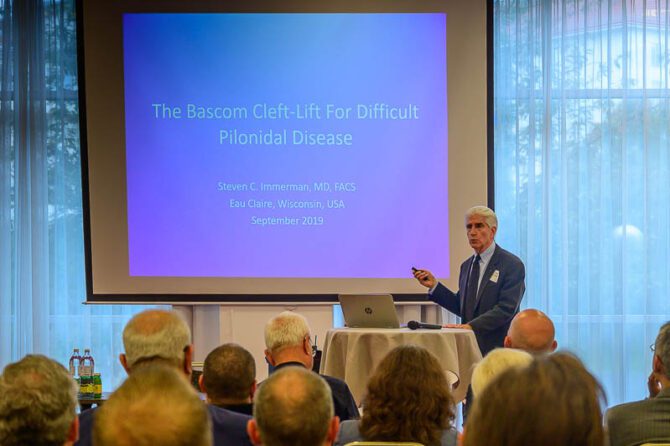
Summary of the 2019 International Pilonidal Society Conference
This year’s conference presented a rare opportunity to hear pilonidal surgeons from all over the world share their experiences and techniques in dealing with this problem. One of the main points of agreement in this conference was that IN 2019 THERE IS NO PLACE FOR WIDE EXCISION AS A TREATMENT FOR PILONIDAL DISEASE. The presenters felt that this was an outmoded method of surgical therapy, and should be relegated to history as an operation that has been surpassed by other more successful procedures, with less difficult recovery.
The presentations regarding specific procedures varied considerably, but were in two categories: flap procedures and minimally invasive procedures. The minimally invasive procedures included:
- Pit Picking
- Gips procedure
- EPSiT
- Laser ablation
- Phenol ablation
- Fibrin glue
- Lord-Millar procedure
These procedures are all similar, in that they attempt to destroy the sinus tract and midline pits using various methods. They are not appropriate for all situations, and the results are variable from surgeon to surgeon, and between the various procedures. The consensus was that there is an indication for these operations in the treatment of pilonidal disease, but that exact indication has not been defined.
Most of the discussion of flap procedures centered around the Cleft-Lift and Karydakis Flaps. The presenters had uniformly good results with these procedures when used with all types and degrees of pilonidal disease. It was felt that the technique had the best cosmetic result and had the highest success rate. It was interesting to hear surgeons from the UK, Turkey, Germany and the U.S. all describe similar positive experiences with this operation.
I presented a series of 500 patients with follow-up from months to decades, with very low complication and failure rates, even in cases of the most difficult disease. There was much interest in my technique and results, and I believe that our clinic is one of the most successful in the world in treating these difficult cases.
Leave a reply